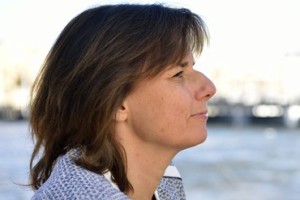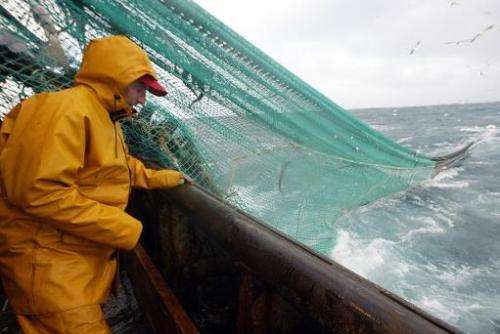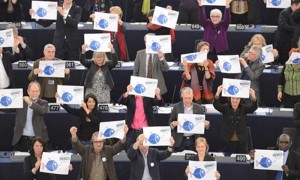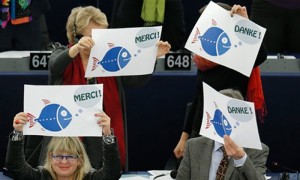Finding the Right Place
Isabella Lövin was brought to Brussels on the back of an eel.
The story starts the day the former food journalist read a press release about this fascinating and endangered species. She was as mesmerized by the mysterious and complex life-cycle of the animal as she was shocked by the rapidity with which its number was going down – 99% of the population has disappeared during the last twenty years only. And still there was no intention of protection.
It was the beginning of a long journey. During the studies of the species that the fascination ignited, Isabella also started getting a lot of information about other sea creatures, such as cod, and the fishing industry. Or, rather, the fishing industries, in different parts of the world, and their impact on the eco-system of the seas.
It is a complex story, where traditional livelihoods are kept alive partly artificially (subsidies) whilst progressively but irrevocably eliminating the very source of their income, the fish. It is about European politics that repetitively encourages increased trawl-fishing because the ever more efficient boats have reached their quotas in advance – and buys fishing rights in the underdeveloped countries’ territories, thus hindering the local small fishermen to gain their lives. And it is also about a total change of eco-system, with huge populations, like the mythic Newfoundland cod, disappearing almost from one year to another, maybe to never come back.
This might all seem anecdotal to some, but the questions raised by the study are at the very heart of our survival, how we will use the limited resources, how the old livelihoods will be kept, but also what we will be able to eat in the future.
The little eel investigation led into a geopolitical and environmental thriller, turned into a book, “Silent seas” (the title being a homage to Rachel Carson’s “Silent spring”), which won the Great Journalist prize in Sweden in 2007. I got knowledge of the book at a visit in Sweden the same year, when Lövin was interviewed in one of the most popular talk shows. Never a book about fish had this kind of success! But then, it is fascinating reading, a mix between investigation and a piscis John Le Carré. The tone is very factual, but you get a sense of just how engaged the author is in his subject, and the narration flows.
In her book, Lövin takes the reader from the stormy Northern seas to Cap Verde, she talks about the eels extremely complex and partly mysterious migration during its lifetime (from the sea of Saragossa to the canals on the European continent, up to the Baltic sea – and then back again), about the history of the European fishing campaigns in the northern Atlantic and about the situation of today’s fishermen. And she talks about the European Parliament,
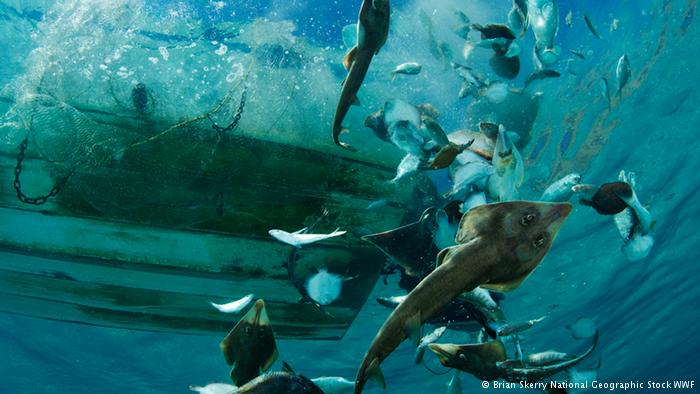 a luxurious and hushed environment, where countries of Southern and Northern Europe gather in groups in order to defend their interests and where the fight between these interests is very real and on the knife although battled with European technocratic form.
a luxurious and hushed environment, where countries of Southern and Northern Europe gather in groups in order to defend their interests and where the fight between these interests is very real and on the knife although battled with European technocratic form.
In 2009, Isabella Lövin herself was elected to the European Parliament, as a representative for the Swedish green party. If she was there confronted with political cynicism and administrative hitches (like votes going wrong because of non-functioning machinery!), one must consider that her time there did a substantial difference. The crowning success was the agreement between the parliament and the council on the fishing reform in the spring of 2013, giving priority
access to fishing to those using sustainable methods and to coastal communities and strengthening the rules on how the EU fleet fishes in non-EU waters. Goals were also set for reconstituting the populations and for limiting the dumping. A vote that seems all the more historic considering the deception of the EU vote in December the same year with a failure by just a handful of votes to ban deep-sea fishing (a bitterly fought amendment that would have seen deep-sea bottom trawling completely outlawed in the northeast Atlantic failed).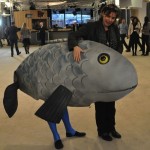 The work in Brussels brought attention to the engaged parliamentarian, and Isabella was asked to join the Swedish government as Minister of Development Assistance after the victory of the left in September 2014. The new job allows Lövin to attack the combined questions of environment and aid to developing countries, two issues that she feels are closely linked and cannot be treated one without the other.
The work in Brussels brought attention to the engaged parliamentarian, and Isabella was asked to join the Swedish government as Minister of Development Assistance after the victory of the left in September 2014. The new job allows Lövin to attack the combined questions of environment and aid to developing countries, two issues that she feels are closely linked and cannot be treated one without the other.
Isabella Lövin is an exception in the world of career politics. If she did study political science in Bologna for one year in her youth, nothing else in her curriculum vitae seems to have prepared her for her present position: as a journalist for radio and press, she worked mainly for women’s magazines and then as a food and culture columnist. The eel was the sparkle (!) that led her to the life she was fitted for, where her talents could be fully exploited.





















